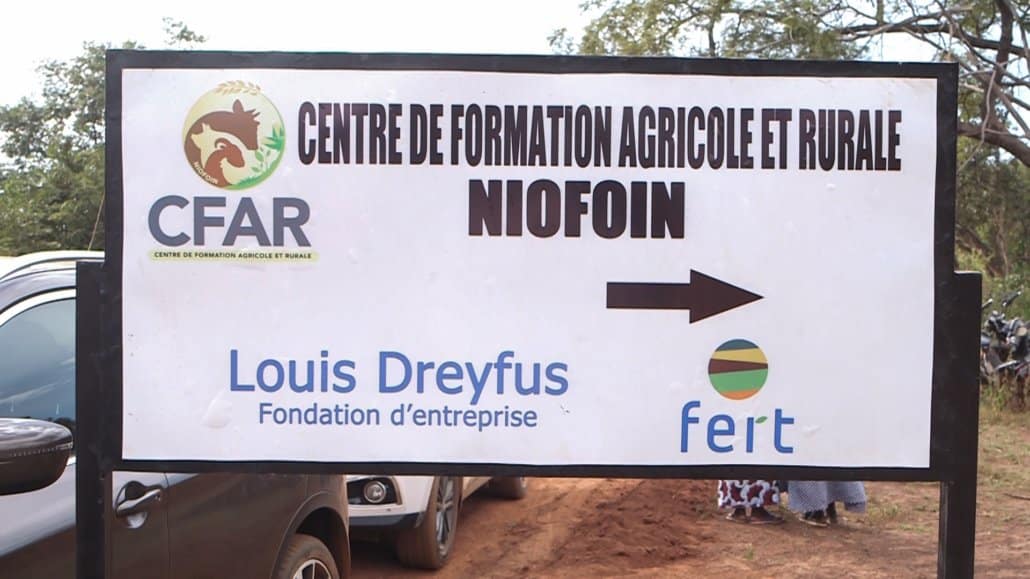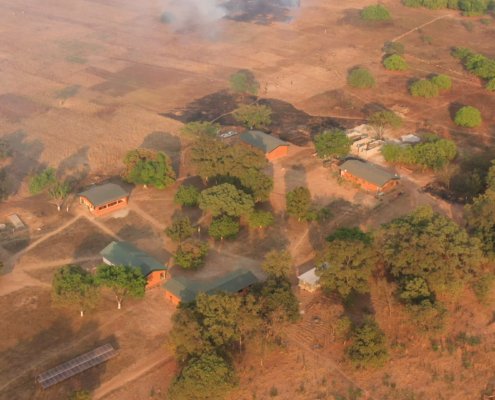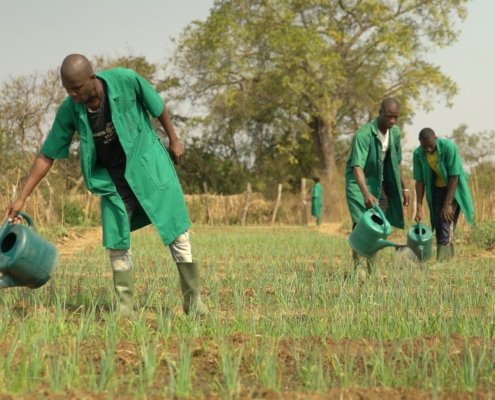In 2017, Fert entered into a partnership with the Louis Dreyfus Foundation and LDC Côte d’Ivoire for a project to train rural youth in the Poro region. In 2019, the region’s very first agricultural and rural training center, the CFAR in Niofoin, was inaugurated. As the first class of CFAR graduates will graduate in July 2021, Robert Serpollet, Managing Director of the Louis Dreyfus Foundation, looks back on this partnership.
What are the missions of the Louis Dreyfus Foundation?
The Louis Dreyfus Foundation is a corporate foundation of the Louis Dreyfus Group. It was created in 2013 and aims to fight against poverty and food insecurity by supporting small producers in Africa, Asia and Latin America. It has two main areas of intervention: technical assistance to producers, which is called micro-farming, and education of future farmers. The Foundation is active in about ten countries. In each case, we work in partnership with NGOs and an internal partner, Louis Dreyfus Company (LDC), an international agricultural commodities trading company belonging to the Louis-Dreyfus group.
Can you introduce the CFAR of Niofoin?
The CFAR is an agricultural college created with Fert and local communities in the northern zone of Côte d’Ivoire. It can accommodate about 60 students, young boys and girls aged between 15 and 25 years and with a minimum level of 5th grade. This college responds to a need to train a new generation of farmers who will develop their own activities by applying modern and sustainable agricultural practices. The students receive theoretical and practical training through field schools that will give them all the skills they need to develop their own agricultural business.
What is your involvement in this project?
It is important to us to ensure that these young “agri-preneurs” as we like to call them, have all the cards in hand to achieve their ambitions. We are therefore committed to regularly monitoring the life of the project through steering committees organized with Fert. Our LDC representative in Côte d’Ivoire ensures a close follow-up and is in direct contact with the teams on site.
With Fert, we are doing everything possible to open the center to the professional world. I see quite natural links with other Foundation projects in the region. For example, we have a project on the rice industry, which can be an opportunity for young people to do internships or enter the professional world. Conversely, the CFAR can be an opportunity for continuing education for the active producers that we support.
What can you say about the partnership with Fert?
The collaboration with Fert has been key since the beginning. Fert has developed expertise in agricultural training in Madagascar, and the teams are available and professional. This convinced us. Our collaboration is based on trust and transparency, we are aware of each other’s strengths and are very complementary.
We are very proud of the CFAR in Niofoin, it is a very beautiful achievement that corresponds to a real local demand. There were no agricultural training facilities in the north of Côte d’Ivoire before. We have a very low dropout rate of students, which confirms the interest of young people for this training and the relevance of the program.
How do you see the future of the center?
With Fert, we are thinking about the long term, about how to guarantee the growth and sustainability of the center. Today, we are already at a key phase in the development of the CFAR, since this year the first class of graduates will leave. We are going to follow very closely their insertion in the agricultural world and we hope to see promising projects that will contribute to the economic development of the area.





